Do you ever feel like the food you eat is working against you?
For more than a decade, I was dealing with severe bloating and constipation. It got so bad it was significantly impacting my health and happiness.
I had seen an incredible number of doctors and gastroenterologists. I had also been put through a lot of tests and prescribed all sorts of medication without any of it truly helping. It wasn’t until I finally found the root cause of my problems that my symptoms largely disappeared.
I tell you: it’s a brand new, happier, and more comfortable world for me
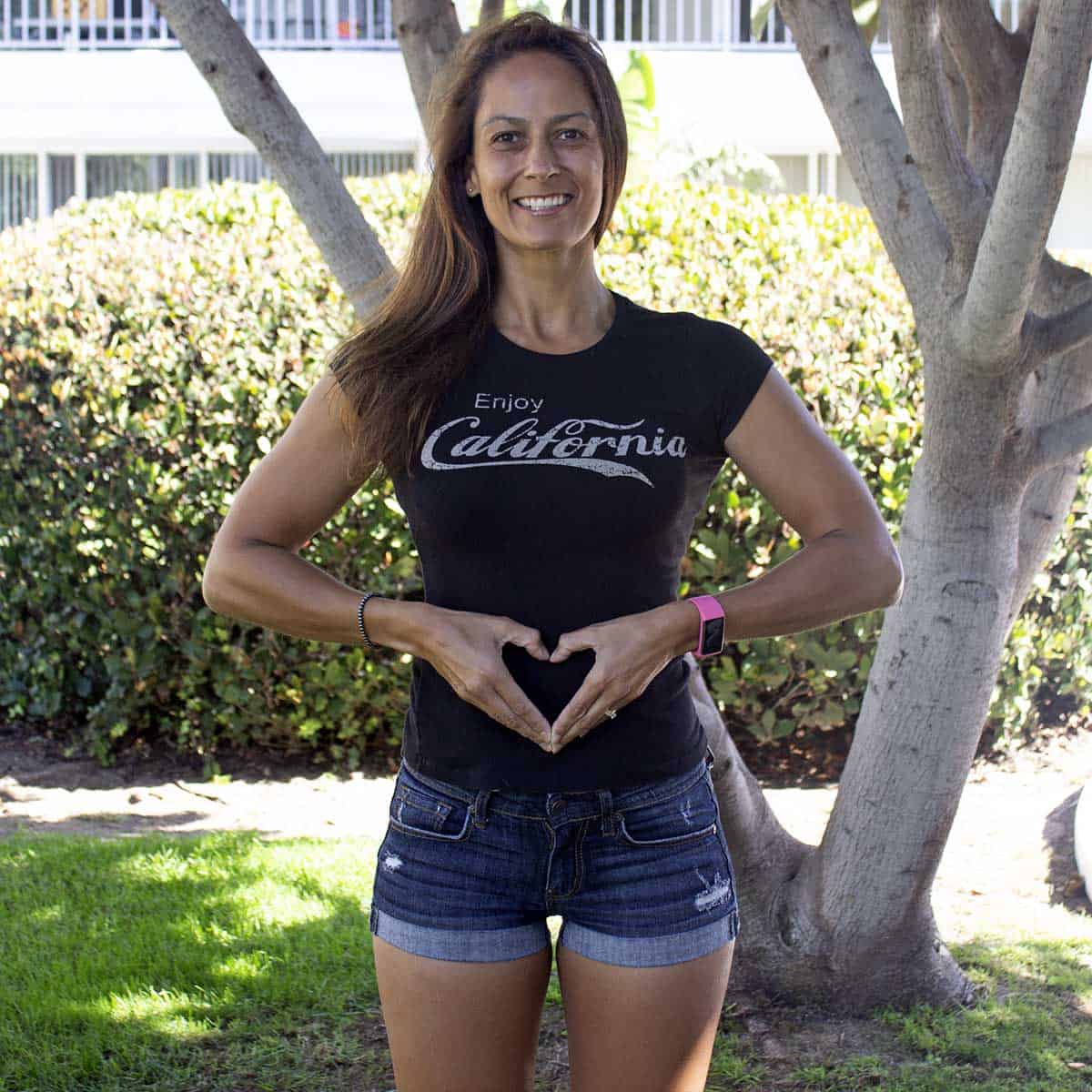
Key facts
- Issues such as bloating and constipation may be attributable to a FODMAP intolerance, a condition in which certain carbohydrates are linked to poor absorption and fermentation in the gut, leading to digestive problems.
- Effective management of digestive issues can be achieved through a structured elimination and reintroduction diet. This approach can help identify specific foods that trigger symptoms, significantly improving gut health and overall well-being.
- While FODMAP intolerance is not directly linked to diabetes, it’s crucial to consider FODMAPs in dietary choices, particularly if you have diabetes and IBS (irritable bowel syndrome), due to the frequent co-occurrence of these conditions.
- Self-advocacy and proactive research are crucial, especially in cases where conventional medical treatments fail to offer relief. Personal research and self-advocacy can play a vital role in discovering effective health management strategies.
Bloating, constipation, and diabetes: my experience
Constipation is typically defined as:
- Having fewer than three bowel movements a week
- Stool that is dry, hard, or otherwise difficult to pass
- Discomfort or bloating along with bowel movements
After all the specialists I had seen, it ended up being my husband who found the right diagnosis for my bloating and constipation via a Google search of my symptoms.
Usually, I really don’t recommend this approach — it’s crucial to rely on professional medical advice — but it proved pivotal in my case after feeling let down by my experiences with the healthcare system. We immediately followed up with my doctor to confirm the diagnosis and discuss treatment options.
(Disclaimer: It is strongly recommended to consult with healthcare professionals for diagnosis and treatment. While my experience was an exception, self-diagnosing via internet searches can lead to inaccuracies and potential health risks.)
In people with diabetes, bloating, constipation, nausea, and other digestive issues can often be caused by a complication known as gastroparesis, a condition in which damage to the nerve that controls the stomach muscles can slow stomach emptying.
Gastroparesis is usually found in people who have had high blood sugar levels for a long time. This condition can happen in both type 1 and type 2 diabetes, but it shows up differently in each.
In type 1 diabetes, high blood sugar over time can damage the nerves that control the stomach, causing gastroparesis. In type 2 diabetes, it’s also linked to how well blood sugar is managed, but factors like being overweight and having high blood pressure can play a role too.
Additionally, certain medications used for treating diabetes, such as metformin and alpha-glucosidase inhibitors (rare), can be linked to gastrointestinal side effects such as constipation.
And then, of course, there’s the possibility that there may be a cause or condition unrelated to your diabetes that is resulting in the bloating and other digestive difficulties, such as dehydration, low fiber consumption, a sudden increase in fiber intake (particularly if you are not drinking enough water), or a gastrointestinal issue like gastroesophageal reflux disease (GERD).
In my case, it turned out I have a FODMAP intolerance, which is a sensitivity to certain carbohydrates found in many foods. Common symptoms of FODMAP intolerance include:
- Cramping
- Diarrhea
- Constipation
- Stomach bloating
- Gas and flatulence
If you suspect a FODMAP intolerance, it’s important to seek professional diagnosis and guidance. A healthcare provider can confirm the intolerance through appropriate tests and help manage the condition with dietary adjustments, possibly including advice on medication and balanced fluid and fiber intake.
By doing a 6-week elimination of specific foods and a 4-week reintroduction, I was able to identify the items my body disagrees with and reduce or eliminate them from my diet.
Now, nearly all of my digestive issues have been resolved, though some minor symptoms might occasionally occur. This significant improvement has helped me understand the importance of closely monitoring and adjusting my diet, under the guidance of health professionals.
What are FODMAPs?
FODMAP stands for fermentable oligosaccharides, disaccharides, monosaccharides, and polyols.
In simpler terms, FODMAPs are certain types of short-chain carbohydrates (sugars) found in some foods. The issue for people intolerant to FODMAPs is that these sugars can’t be absorbed in the small intestine.
Instead, they are fermented (broken down) by bacteria living in the colon, creating gas and bloating. For some people, this can cause symptoms such as constipation or diarrhea.
The tricky part about understanding this is that not all sugars are FODMAPs, and it’s not intuitive which ones are. I ended up buying the Monash University FODMAP Diet App so I could look up foods on the go.
Also, to make things even more complicated, it’s possible to have an intolerance to some but not all FODMAP foods.
Some of the worst offenders for me are onions, garlic, and mushrooms. Although those are generally healthy foods, my body simply can’t deal with them.
There is no cure for FODMAP intolerance, so the only solution is to simply cut the offending foods out of your diet or consume very limited amounts.
Common sources of FODMAPs
According to the Monash University FODMAP Diet App, some common sources of FODMAPs include:
- Foods with more fructose than glucose (e.g., apples, cherries, peaches, pears, and many other fruits; honey; high-fructose corn syrup)
- Lactose (milk and milk products)
- Sugar polyols (sweeteners containing sorbitol, mannitol, xylitol, maltitol, and some fruits and veggies)
- Fructans (a type of carbohydrate found in wheat, rye, onions, and garlic)
- Galacto-oligosaccharides (prebiotics, a type of dietary fiber that feed the beneficial bacteria in the gut, found in legumes such as beans and lentils)
For me, cutting the biggest offenders out of my diet has made a world of difference to my gut health and overall happiness.
It’s important to note that while my specific trigger foods may not align with everyone’s, common culprits often include high-FODMAP foods like onions, garlic, beans, and certain fruits and wheat products. These foods are known to cause digestive issues for many people.
In my case, identifying and eliminating my personal trigger foods alleviated symptoms such as bloating, constipation, and excessive gas, which are common but not the only potential reactions one might experience.
Each person’s reaction can vary, and consulting a healthcare provider to tailor dietary adjustments is crucial for effective management.
How to diagnose a FODMAP intolerance
The best way to diagnose a FODMAP intolerance is to simply cut all high-FODMAP foods out of your diet for a while and see what happens to your digestion.
This diet is quite restrictive and isn’t intended to be maintained long-term, but it can help you pinpoint what foods may be negatively affecting you.
If you see a significant improvement during the elimination phase, there is a good chance you are intolerant to at least some FODMAP foods.
However, not everyone will experience clear results, and if you don’t see an improvement, it doesn’t necessarily mean FODMAPs aren’t a problem for you. In such cases, discontinuing the diet may be premature.
It’s important to conduct this dietary experiment under the guidance of a healthcare professional, such as a GI specialist or a dietitian with expertise in low-FODMAP diets.
They can help interpret your results and decide on the next steps, which might include further testing or adjustments to your diet. Consulting with a specialist ensures that you are making informed decisions about your health based on a comprehensive understanding of your symptoms and potential food triggers.
Also, it’s worth noting that if you have a condition such as small intestinal bacterial overgrowth (SIBO), you may feel worse on the elimination phase before you feel better as the overgrown bacteria die off.
After about 2 to 6 weeks of elimination, you can start systematically adding potential problem foods back into your diet one by one over the course of about 6 to 8 weeks. Add a single food (such as onions) for 3 to 4 days and see how your digestion reacts. If everything is still OK, then you can probably tolerate that food.
In between testing foods, you’ll revert back to the strict diet to avoid overlapping effects from multiple foods.
It is generally recommended that you conduct an elimination diet in collaboration with a registered dietitian nutritionist (RDN) to ensure that you get all the nutrients you need.
If they are also a certified diabetes care & education specialist (CDCES), they can also help ensure your blood sugar stays within target range as you’re adjusting your diet.
And even if you are familiar with the steps of an elimination diet, it’s always a good idea to check with a healthcare professional before you start. There may be other potential avenues you can explore before trying the diet, and they can help you plan a proper menu if you do move forward with an elimination diet.
Just be aware that FODMAP foods are cumulative. This means that you may be OK with small amounts of some FODMAP foods but have problems if you eat several of them together or in larger amounts.
It definitely takes a while to figure out what you can and cannot tolerate, but I can tell you from my experience that it’s so worth it.
Constipation and diabetes: from challenge to change
FODMAP intolerance is not unique to people living with diabetes, and there is no established physiological link directly connecting the two conditions. But given that diabetes and IBS (irritable bowel syndrome) often go together, I think FODMAPs are worth paying special attention to if you have diabetes.
I lived with severe FODMAP intolerance symptoms for more than 10 years without any of the specialists I saw ever suggesting a food intolerance. That blows my mind!
And know that FODMAPs aren’t “alternative” science in any way. They are very well researched — Stanford’s Digestive Health Center even has specialists on the low-FODMAP diet and how to identify triggers.
As with everything in life, I believe knowledge empowers us. Knowing how we react to certain foods can enable us to make the right choices to have a happy and healthy life. Constipation and diabetes don’t have to go hand-in-hand!



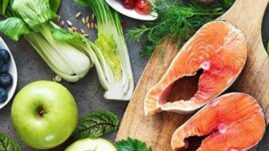
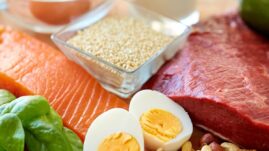
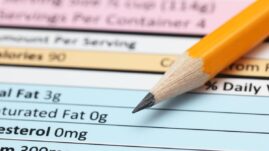
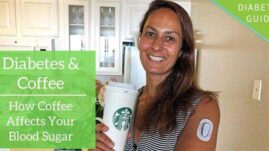
Shawna
Hi
My name is Shawna. I have had Type 1 since age 6. Now that I’m in my late 40’s I’m starting to really feel certain things differently.
I too suffered from Bloating, constipation, and all the rest that you did…
My Dr said IBS…
My dietitian recommended the Fodmap approach, which I was trying to do but it’s very limiting.
I decided to see a naturopath after everything I was trying.
So turned out it was not IBS but SIBO (small intestine bacterial overgrowth).
I needed to take a pretty strong prescription for 1 month and then special probiotics for a month, but let me tell you, I AM HEALED!
I am so thankful for the test that only my naturopath suggested. It was a breath test that was done after drinking a specific drink but it showed that the levels of methane, Co2 were not in line with a normal result, and which is shown to cause all of the symptoms you and I both had.
Definitely worth checking in with a naturopath.
I can now eat everything with no bloating and etc. I’m now comfortable no matter what I eat.
Pat Voelker
Thank you for posting this site. I have 2 family members with issues you address in this site: pre-diabetes and fodmop sensitivity issues. I was initially searching for the low carb breads and found your site. I will also go back to search for the fodmop issue. Thank you again for your research and for sharing personal experience with the breads reviewed — this will help with one person.
Pat
Rob Bagwell
I’ve been so very frustrated for so many years. Even before my big weight gain concurrent with the abomination of introducing Lantus briefly into my diabetes. I gained perhaps 25 lbs in a month! No more gym. No more exercise and just feeling like crap. No more weight loss. When I some 11 years later went off all simple carbs at the recommendation of a doctor, my weight did drop, but then I got fired for lack of productivity (I felt exhausted all the time) and then CoVid. I hate looking at myself in the mirror. They all assume you need to go on a diet and doctors are useless–doctors are useless. I’m so very depressed and trying to get on to disability. Maybe then I can focus on getting a life back. Thanx
amir ali
The same diet has different impacts on BS fro the same individual. Why this is so, Please explain if this is same with anyone?
Christel Oerum
We’re all a little different. Our gut bacteria is going to be slightly different, our digestive enzymes as well as how fast we digest different foods can differ as well. When we look at blood sugar response how we react will also be impacted by our insulin sensitivity
nilekha
Hello,
My uncle is diabetic and complains about gas and constipation all the time..
It’s been 20years that he is dealing with this issue.
I will definitely ask him to try a food elimination method of yours.
Thank you!
Wambuzi Paul
Similarly I have been having challenges with taking milk.Whenever I would take milk ,I would have rumbling stomach and it could be loud and irritating and so I gave up on taking milk
Wambuzi Paul
Vandana
Hi, have you been checked for small intestinal bacterial overgrowth (SIBO)? Usually an imbalance of bacteria in the small intestine causes bacteria to feast on carbohydrates and the gas they produce causes bloating. SIBO causes constipation and diarrhea. The low FODMAP diet helps relieve symptoms of SIBO but SIBO can be treated too.
Christel Oerum
I’m not sure about that specific test but the gastrologist I saw run every test she found relevant. But I’ll go back and look
Rita
The SIBO test is a breath test. You should remember if you did one, the day before prep is to eat only plain white bread, white potatoes or white rice with salt only.
dave
Is stevia a potential problem ? also did you experience any nausea? I have been transitioning to LCHF and started to experience gas excess accompanied by mild nausea. also wondering if alcohol antagonizes
Christel Oerum
We all digest food very differently so even though Stevia isn’t an issue for me it might be for you. I, on the other hand, can’t digest xylitol at all while others have no issues. You can find my completely guide to sweeteners here: https://diabetesstrong.com/how-natural-artificial-sweeteners-affect-blood-sugar/